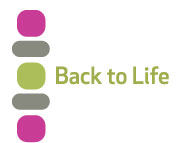 When I hear the word vulnerable, certain images come to my mind: A dog or cat, or any animal laying down on
its back during a fight. Someone with
his or her back to a wall with nowhere to go.
Or someone walking down a cobblestone street, in the dark, slightly damp
with scary music in the background.
When I hear the word vulnerable, certain images come to my mind: A dog or cat, or any animal laying down on
its back during a fight. Someone with
his or her back to a wall with nowhere to go.
Or someone walking down a cobblestone street, in the dark, slightly damp
with scary music in the background.
All these scenarios indicated danger or losing to
me. And I shied away from using the
word. Yet it is the current buzzword in
communication/new age health circles. So
I decided to look it up.
vulnerable |ˈvəln(ə)rəbəl|
adjective
susceptible
to physical or emotional attack or harm: we were in a vulnerable position
| small fish are vulnerable to predators.
•
Bridge (of a partnership)
liable to higher penalties, either by convention or through having won one game
toward a rubber.
ORIGIN early 17th cent.: from late Latin
vulnerabilis,
from Latin
vulnerare ‘to wound,’ from vulnus ‘wound.’
What!? Susceptible to
attack! Harm?! Of course it is hard to be vulnerable. Of
course I hear people say I don’t want to be vulnerable.
But what does that have to do with saying the truth? Why do we think that telling others what is
really going on for us will make us susceptible to attack? I’m sure it is an old story. Parents and society in general not being able
to communicate their needs without squashing the needs of the children? Possibly going to school for 12+/- years
sitting in straight rows, competing with the kids next to us for the approval
of the authority? Thus making ‘all
others’ our enemies? Yes, we do have a
lot to get over.
And is there a difference between being susceptible to attack and being
harmed? I think yes. And it is a big difference. If someone doesn’t like what you say or do
and they tell you (yes, even in ways you do not like, for example yelling or
poking fun) which may seem like an attack, still really what is the harm?
So I looked up harm.
harm |härm|
noun
physical
injury, esp. that which is deliberately inflicted: it's fine as long as no
one is inflicting harm on anyone else.
•
material damage: it's unlikely to do much harm to the engine.
•
actual or potential ill effect or danger: I can't see any harm in it.
verb
[ with obj. ]
physically
injure: the villains didn't harm him.
•
damage the health of: smoking when pregnant can harm your baby.
• have an adverse effect on: this could
harm his Olympic prospects.
Talks about physical injury only. Most often when the discussion of
vulnerability comes up, it is emotional harm that we are talking about. “I don’t feel emotionally safe.“ And
that, my friends, is an inside job.
What I hear when you say ‘emotional safety’ is that you are not willing
to bear the feelings you have because of the meaning you make about what
someone says to you. You are mistakenly
giving your power away. Maybe that’s why
you might say you are vulnerable. But,
as it turns out, it isn’t true.
The consequence is to continue to outsource your emotional safety, and
wait til you think you can control what everyone says to you and wait and wait,
and hope to get your needs met, so you feel comfortable. Although I am not so sure you are really
comfortable, you just prolong the experience of feeling scared. Which is the very experience of not having
emotional safety. augh. What a horrifying loop!
 What if you took yourself on and remained curious about how and why you
feel a particular way? What if when
someone said something you didn’t like, you used your uncomfortable feelings to
guide you to the very things that are important to you in that moment? It is quite the powerful, resourceful place
to be. It is freedom.
What if you took yourself on and remained curious about how and why you
feel a particular way? What if when
someone said something you didn’t like, you used your uncomfortable feelings to
guide you to the very things that are important to you in that moment? It is quite the powerful, resourceful place
to be. It is freedom.
You can walk down the dark alleys of relationships fraught with
dangerous conversations with confidence, knowing that your emotions (yes, even
the ones you have been trained not to like) are your gateways to identifying what’s
important to you. And when you know
what’s important to you, you can make conscious choices to have more of it – in
every moment.

No comments:
Post a Comment